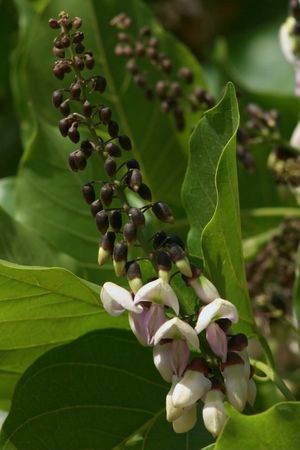Note: This is a project under development. The articles on this wiki are just being initiated and broadly incomplete. You can Help creating new pages.
Difference between revisions of "Pongamia pinnata - Naktamala"
m (Prabhakar moved page Naktamala to Naktamala (Pongamia pinnata)) |
m (Prabhakar moved page Naktamala (Pongamia pinnata) to Pongamia pinnata - Naktamala) |
(No difference)
| |
Revision as of 10:22, 23 April 2018
Naktamala is a species of tree in the pea family, Fabaceae, native in tropical and temperate Asia including parts of Indian subcontinent, China, Japan, Malesia, Australia and Pacific islands.
Description
Naktamala is a legume tree that grows to about 15–25 metres (50–80 ft) in height with a large canopy which spreads equally wide. It may be deciduous for short periods. It has a straight or crooked trunk, 50–80 centimetres (20–30 in) in diameter, with grey-brown bark which is smooth or vertically fissured. Branches are glabrous with pale stipulate scars. The imparipinnate leaves of the tree alternate and are short-stalked, rounded or cuneate at the base, ovate or oblong along the length, obtuse-acuminate at the apex, and not toothed on the edges. They are a soft, shiny burgundy when young and mature to a glossy, deep green as the season progresses with prominent veins underneath.[1]
Uses
Naktamala is renowned for its shade and is well known in traditional uses for its medicinal properties. It is also grown as a host plant for lac insects. The tree is also one of the food plants for Common Cerulean (Jamides celeno). The seeds contain pongam oil that is now being explored as an alternate fuel source.
Common name
- English - Indian beech
- Kannada - ಹೊಂಗೆ
- Hindi - करंज
